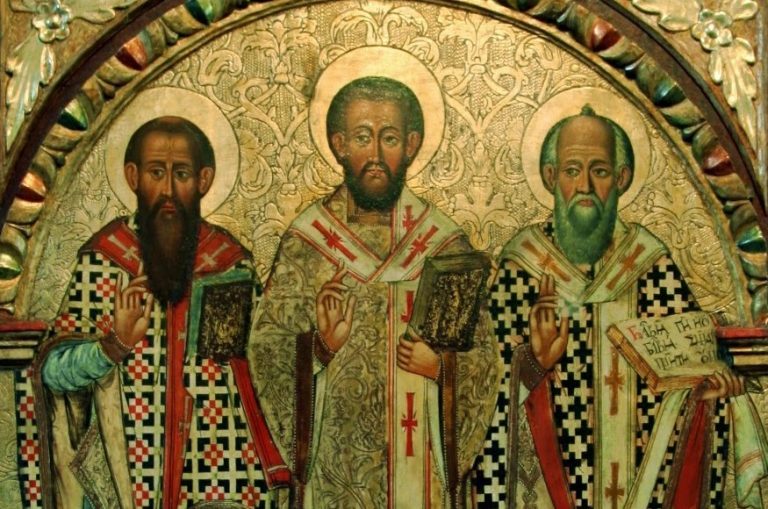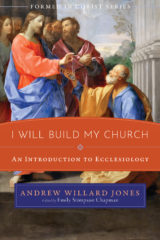By Andrew Willard Jones
Dr. Andrew Jones holds a PhD in Medieval History from Saint Louis University and is an expert on the Church of the High Middle Ages. He is the author of Before Church and State: A Study of Social Order in the Sacramental Kingdom of St. Louis IX and the pioneer of the Formed In Christ series of faith formation texts, as well as the author of several books in this series.

What is the Catholic Church? Is it an organization made up of priests and bishops, monks and nuns? Is it an institution to which people belong as members? Is it a spiritual tradition that guides people’s beliefs and actions?
In a sense, the Church is all these things. It is an organization. It is an institution. And it is a spiritual tradition. But, it’s also much, much more.
The Church is your parish, your diocese, and the Vatican. It’s the pope, the bishops, the priests, and the deacons. It is the monks and nuns. It is the faithful laity. The Church is the entire people of God—God’s family—bound so closely to him that, in a very real sense, we can call it the Bride of Christ and the Body of Christ on earth (CCC 771).
This Body and Bride has many features and is visible in history in numerous ways. It has a structure like a government, with offices, leaders, and laws, and even courts and trials. But it also is invisible; it is a spiritual reality, a communion that unites all people of faith. On earth, the Church is made up of people pursuing holiness in the midst of the world, but the Church is also in purgatory and in heaven. In purgatory, it’s made up of those suffering for their sins, yet still destined for the joy of heaven; and in heaven, it’s made up of the saints—those who see God.
Through his Church, Jesus remains ever present to the world, and through the Church, we remain united to him and to each other. The establishment of this unity—or communion—both “horizontally” between people and “vertically” between the people and God, was the very mission of Jesus Christ.
Since his coming, the communion Jesus established has been perfected in the Sacrament of the Eucharist. The celebration of the Eucharist is the heart of the Church because it is the ultimate manifestation of true communion, both amongst men and between men and God. This is why we call the Eucharist “Holy Communion.” For this communion God created us. He made us to love him and to love each other. So, in this sense, you can say God made us for the Church.
In I Will Build My Church, explore the mystery of the Church and unpack what it means to be a part of it, looking at the history of Church in Sacred Scripture, the mystery of the Church in time and eternity, and your life in the Church today. Through it all, deepen your understanding of the Church and also strengthen your appreciation for the Church to more clearly recognize that the Church isn’t an add-on or an extra to your relationship with Jesus Christ. It is an indispensable gift, through which God seeks to unite you ever more closely to himself.
The Formed in Christ series is a solid and faithful resource that provides a thorough treatment of the Catholic faith and various branches of theology. Whether you're an armchair theologian wanting to fill in the gaps of your religious education or an educator who wants to implement a rigorous and orthodox curriculum, you'll find your answer in the Formed in Christ series.
You Might Also Like

The Formed in Christ series is a solid and faithful resource that provides a thorough treatment of the Catholic faith and the various branches of theology. I Will Build My Church: An Introduction to Ecclesiology covers a broad range of topics, from Church history, to her hierarchy and liturgy, to her mission in the world.

